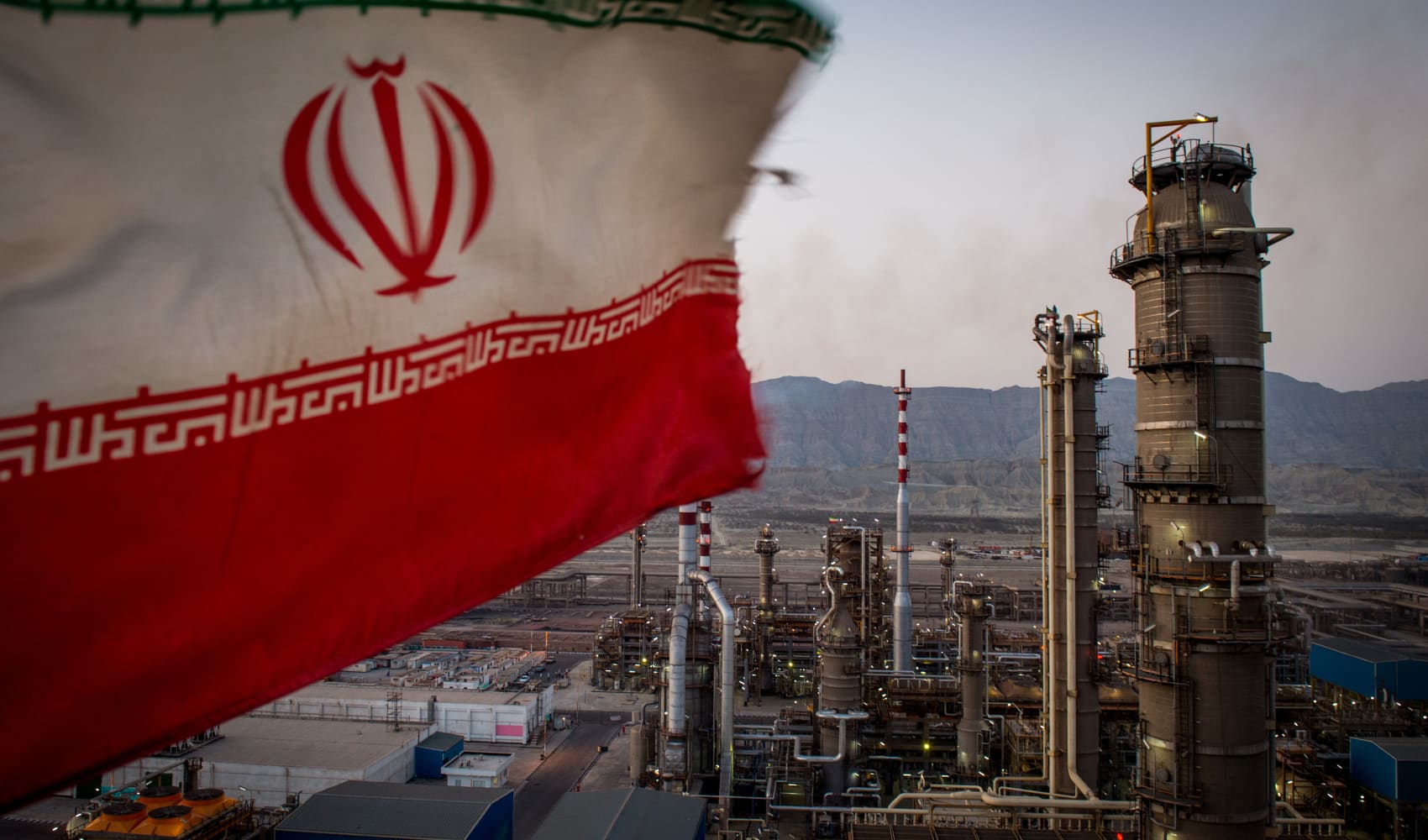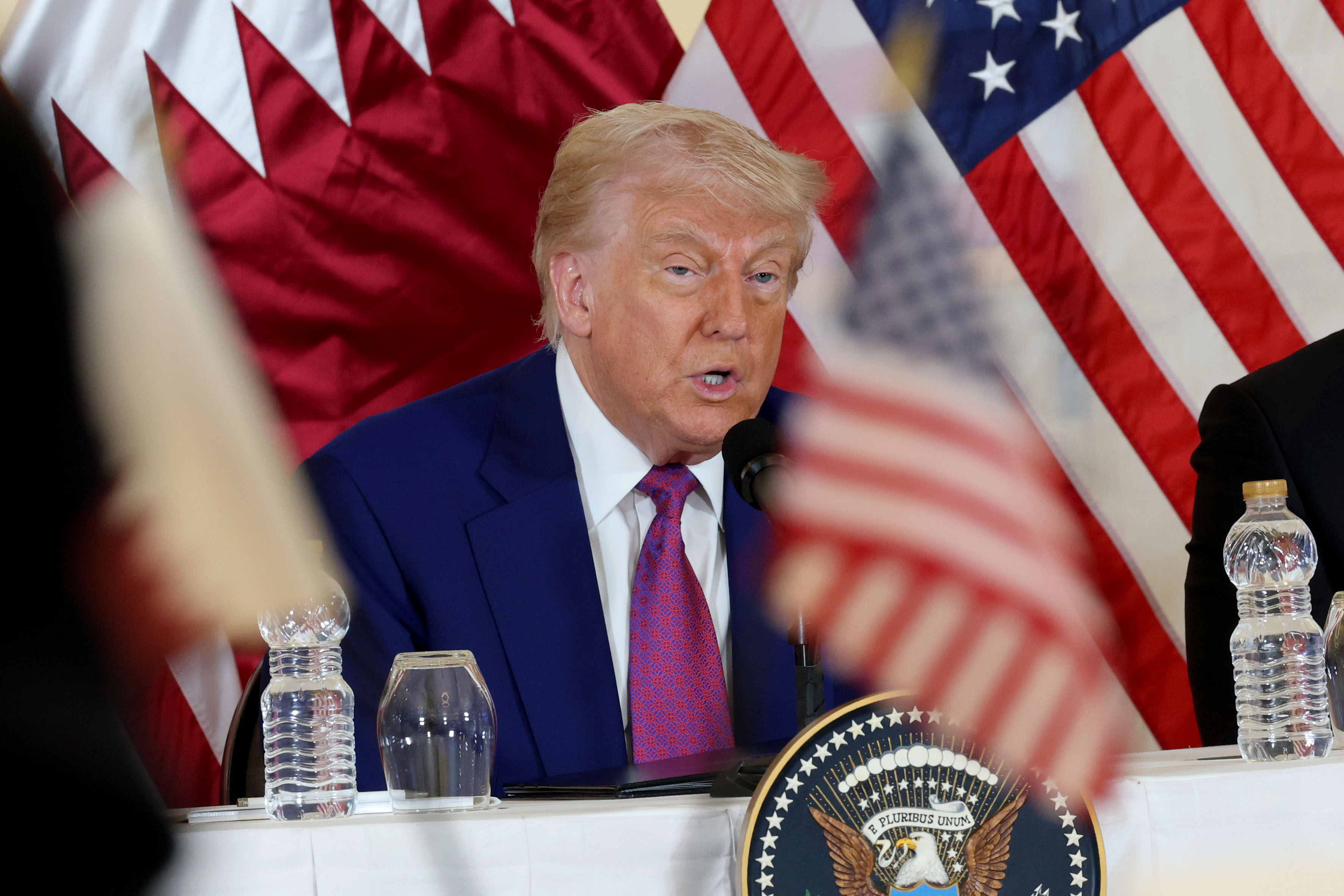Iran Oil Ban: How Trump's Sanctions Shook the World
Trump's Iran Oil Ban: A Global Economic Earthquake?
Introduction: The Stakes Are High
What happens when the world's largest economy draws a line in the sand? In this case, it's a line drawn by former President Donald Trump concerning Iranian oil. Imagine you're running a business, and one of your biggest clients says, "Deal with them, and you're done with me." Pretty scary, right? That's essentially the message Trump sent to the world regarding Iran's oil exports. President Donald Trump declared that any country or person buying oil or petrochemicals from Iran would be barred from doing business with the United States. This bold move, aimed at crippling Iran's economy, sent ripples across global markets and ignited a complex web of geopolitical consequences.
The "Maximum Pressure" Campaign: Squeezing Iran's Economy
Trump's administration wasn't shy about its intentions. It explicitly aimed to completely shut down Iran's oil exports through what they called a "maximum pressure" campaign. Think of it like trying to shut off a water hose entirely. No trickle, no stream, nothing. Trump in February ordered a “maximum pressure” campaign against Iran, aiming to completely shut down the Islamic Republic’s oil exports. But was it truly possible, and at what cost?
How Effective Was Maximum Pressure?
The strategy did have a significant impact. Iran's oil exports plummeted, severely impacting its economy. But did it achieve its goal of completely shutting down exports? Not quite. Some countries continued to purchase Iranian oil, albeit often under the radar. The real question becomes, at what cost to the global economy and international relations?
The Nuclear Deal: A Tangled Web of Diplomacy
This oil ban didn't happen in a vacuum. It was deeply intertwined with negotiations surrounding Iran's nuclear program. Remember the Iran nuclear deal (JCPOA)? Trump withdrew the US from it, arguing it was too weak. Then, he initiated negotiations with Iran over its nuclear program in April. The president initiated negotiations with Iran over its nuclear program in April. It was like playing a high-stakes game of poker with the world watching.
The JCPOA and Its Aftermath
The JCPOA aimed to prevent Iran from developing nuclear weapons in exchange for lifting sanctions. Trump's withdrawal and reimposition of sanctions threw a wrench into the works. The remaining parties to the deal (Europe, Russia, and China) struggled to keep it alive, caught between US pressure and their own interests.
Oil Prices: The Ripple Effect
It’s not a surprise that oil prices reacted. U.S. crude oil futures rose. U.S. crude oil futures rose $1.03, or 1.77%, to close at $59.24 per barrel, while global benchmark Brent gained $1.07, or 1.75%, to settle at $62.13. Iran is a significant player in OPEC, so when its supply is threatened, the markets get nervous.
The Impact on Consumers
Higher oil prices mean higher gasoline prices at the pump for consumers. Think about it: you're filling up your car, and suddenly it costs you a few extra bucks. Those extra bucks add up over time, impacting household budgets and potentially slowing down the economy.
The US Dollar's Power: An Economic Weapon
The power of the US dollar as the world's reserve currency is undeniable. By threatening to cut off access to the US market, Trump was wielding a powerful economic weapon. It's like having the master key to the world's economy. No one wants to be locked out.
Dollar Dominance and Its Implications
The US dollar's dominance gives the US significant leverage in international trade. It allows the US to impose sanctions and exert pressure on other countries in a way that few other nations can match. This raises questions about fairness and the potential for abuse of power.
Who Dared to Buy Iranian Oil?
So, who defied the US and continued to buy Iranian oil? Some countries, like China and India, were reluctant to completely cut ties with Iran. They argued that they had legitimate energy needs and that the US sanctions were an overreach. It was a delicate balancing act.
Economic Ties vs. Political Pressure
For these countries, the decision was a complex calculation of economic interests versus political pressure. They had to weigh the potential consequences of defying the US against the benefits of maintaining trade relations with Iran.
The Geopolitical Fallout: Tensions Rise
Unsurprisingly, Trump's policy intensified tensions in the Middle East. Iran felt cornered and responded with its own actions, leading to increased instability in the region. Think of it as poking a bear. Eventually, it will retaliate.
Proxy Wars and Regional Conflicts
The Iran oil ban exacerbated existing proxy wars and regional conflicts. It fueled the tensions between Iran and its rivals, such as Saudi Arabia, and contributed to a climate of instability in the Middle East.
The European Dilemma: Caught in the Middle
European countries, who were signatories to the JCPOA, found themselves in a tough spot. They wanted to maintain the nuclear deal but were also under pressure from the US. It was like being stuck between a rock and a hard place.
The INSTEX Mechanism: A Workaround?
Europe tried to create a special purpose vehicle called INSTEX to facilitate trade with Iran without using US dollars. However, INSTEX proved to be largely ineffective due to its limitations and the risks involved.
The Long-Term Consequences: A Lasting Impact?
Did Trump's policy permanently damage US-Iran relations? Did it succeed in preventing Iran from developing nuclear weapons? These are questions that will continue to be debated for years to come. The impact of this policy will likely be felt for a long time.
The Future of US-Iran Relations
The future of US-Iran relations remains uncertain. It will depend on the policies of future administrations and the willingness of both sides to engage in constructive dialogue. The scars of Trump's policy will undoubtedly linger, making reconciliation a challenging process.
The Global Economy: A New Normal?
Did Trump's actions reshape the global economic landscape? Did it encourage other countries to seek alternatives to the US dollar? These are important questions to consider as we look to the future.
The Rise of Alternative Currencies
Some countries are exploring the use of alternative currencies, such as the Chinese Yuan, in international trade to reduce their reliance on the US dollar. This trend could gradually erode the dollar's dominance and create a more multipolar global economy.
The Biden Administration: A Shift in Strategy?
The Biden administration took a different approach, seeking to revive the JCPOA and ease sanctions on Iran. Was this a more effective way to address the challenges posed by Iran's nuclear program? Time will tell.
Diplomacy vs. Coercion
The Biden administration's shift in strategy highlights the ongoing debate between diplomacy and coercion in foreign policy. Some argue that diplomacy is the only way to achieve lasting solutions, while others believe that pressure is necessary to force countries to change their behavior.
Conclusion: Lessons Learned
Trump's Iran oil ban was a bold and controversial move that had far-reaching consequences. It demonstrated the power of the US dollar, intensified tensions in the Middle East, and raised questions about the future of US-Iran relations. The key takeaway? Economic sanctions are a complex tool with unintended consequences. They can be effective in achieving certain goals, but they can also have negative impacts on the global economy and international relations. A nuanced and strategic approach is essential. Was it worth it? That's a question for historians to debate. The world learned a hard lesson about the interconnectedness of the global economy and the dangers of unilateral actions.
Frequently Asked Questions
Q1: What was the main goal of Trump's "maximum pressure" campaign against Iran?
A: The primary goal was to completely shut down Iran's oil exports, thereby crippling its economy and forcing it to renegotiate the nuclear deal.
Q2: Which countries continued to buy Iranian oil despite the US sanctions?
A: Countries like China and India were among those that continued to purchase Iranian oil, arguing they had legitimate energy needs.
Q3: How did Trump's policy affect oil prices?
A: Trump's policy contributed to higher oil prices, as the threat of reduced Iranian supply caused uncertainty in the market.
Q4: What was INSTEX, and why was it created?
A: INSTEX was a special purpose vehicle created by European countries to facilitate trade with Iran without using US dollars, aiming to bypass US sanctions.
Q5: What is the current status of the Iran nuclear deal (JCPOA)?
A: The JCPOA's future remains uncertain, with ongoing negotiations to revive the deal after the US withdrawal under Trump and subsequent sanctions. The Biden administration initially sought to rejoin but progress has stalled.

